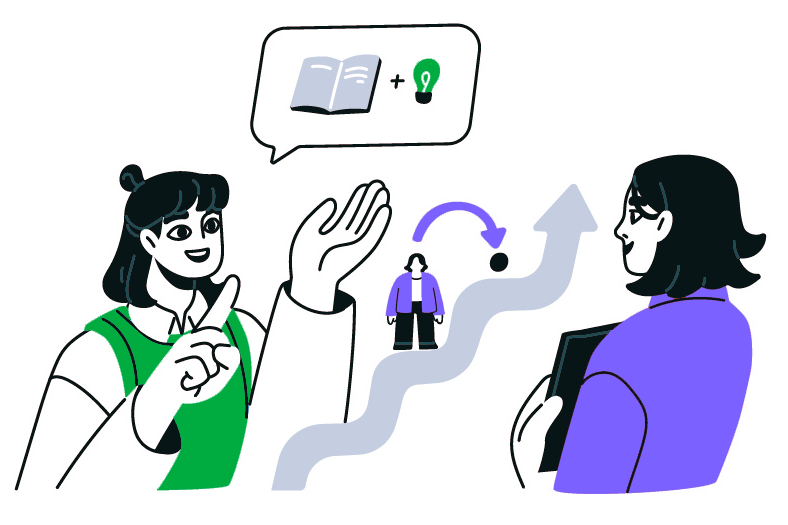Soft Skills Importance Has Risen by 20%
When we hear the term soft skills, many still picture basic training in communication or emotional awareness—ideal for entry-level roles or underperformers. But in today’s fast-paced, people-driven business environment, this perception couldn’t be further from reality.
Soft skills training has evolved into one of the most strategic investments a company can make. It’s no longer about fixing deficits—it’s about enhancing leadership capabilities, fostering resilient teams, and driving performance across the organization. Especially in the age of AI – organizations are quickly learning what it can do, but they’re also learning what it can’t do. World Economic Forum reports that the importance of soft skills has risen by 20% since 2018 even in positions that traditionally required soft skills less frequently.
In this blog, we’ll explore how to position soft skills development as a business driver—not a remedial intervention. Whether you’re a leader in HR, learning and development, or an executive yourself, this guide will help you connect the dots between people skills and measurable business outcomes.
- Soft skills are having a glow-up. The World Economic Forum says their importance has risen 20% since 2018—and no, they’re not just for interns anymore. In the AI age, empathy and adaptability are just as valuable as technical chops.
- They boost productivity and innovation. One study found soft skills training increased productivity by 12%, and Deloitte reports companies with strong learning cultures are 92% more likely to innovate. That’s not fluff—that’s ROI.
- They hit your business goals, too. Gallup links employee development to 2x retention and 11% greater profitability. Translation: better culture, happier employees, and stronger margins.
- Training doesn’t have to be boring or all-day. Short-form modules, executive coaching, or peer cohorts let leaders practice EQ, feedback, and conflict resolution in ways that actually fit their schedules.
- Soft skills = competitive advantage. Emotional intelligence, communication, and adaptability aren’t “nice-to-haves”—they’re leadership essentials that help organizations thrive in disruption and keep talent sticking around.
Soft Skills Improve Innovation and Productivity
Let’s start with a definition. In a business context, soft skills refer to a range of interpersonal and intrapersonal abilities—including emotional intelligence, communication, adaptability, and conflict resolution. While often viewed as intangible, these capabilities have very real implications for business success.
Research consistently shows that soft skills training for employees boosts both individual and team performance. For example, a 2017 study by Boston College, MIT Sloan, and the University of Michigan found that soft skills training led to a 12% increase in productivity. Another Deloitte report found that organizations with strong learning cultures (which include soft skills training) are 92% more likely to innovate.
More specifically, when executives demonstrate high emotional intelligence, they inspire trust, retain talent, and navigate complex decisions with greater ease. These are not "nice-to-haves"—they’re essential leadership skills that directly affect the bottom line.
Connecting Soft Skills to Strategic Business Goals
Let’s give your leaders the benefit of the doubt – it's not that they don’t want to provide their employees with the opportunities to grow. But training doesn’t grow on trees, and neither does money – what are the benefits that the business can gain from employee soft skills training? What are the business objectives that can be met?
- Retention: Gallup found that organizations that invested in employee development were twice as likely to retain their employees as those that didn’t.
- Team performance: Strong communication skills foster clarity, reduce misunderstandings, and promote collaboration. When teams communicate effectively, they get more done—faster.
- Profit: The tie to employee development and stronger profit margins is repeatedly measurable – Gallup found that organizations who provide training opportunities to their employees report 11% greater profitability.
- Culture and adaptability: In an age of disruption, adaptability is a competitive advantage. When leaders model flexible thinking and resilience, it encourages those traits in their teams, building agile organizations that thrive in change.
Rather than framing these conversations around personality traits, talk about performance optimization. Discussing how to improve soft skills becomes a conversation about sharpening the tools that make teams more effective.
Practical Ways to Introduce Soft Skills Training to Executives
The key to getting executives on board and initiatives off the ground? Make it low-lift and high-value.
Start with assessments or executive coaching to spotlight current strengths and blind spots. These individualized approaches feel tailored, not preachy.
You might also consider peer-learning cohorts or small-group executive training—safe spaces where leaders can practice and refine their soft skills without pressure. Or explore online soft skills training, which allows for discreet, on-demand learning that fits busy schedules.
One company we worked with introduced a short-form leadership series via video modules—think 10-minute lessons on giving feedback or managing conflict. Their internal promotions rate is at 70%.
In short, training soft skills doesn't have to mean full-day workshops. It can be incremental, personalized, and aligned with what leaders value most: results.
Recommended Soft Skills Training Topics
If you’re curating a curriculum, here are high-impact soft skills training topics that resonate with employees at all levels and especially leaders:
- Emotional Intelligence (EQ): Helps leaders make decisions with empathy and self-awareness.
- Conflict Resolution & Feedback: Teaches how to navigate tension and give constructive input that motivates change.
- Change Management: Builds resilience and clarity during transitions, crucial in volatile markets.
- Cross-functional Communication & Storytelling: Strengthens the ability to align teams, rally support, and communicate strategy with influence.
These topics are not just "soft"—they're business-critical.
Choosing the Right Format: In-Person vs. Online Soft Skills Training
When selecting a delivery model, think about executive preferences and organizational needs.
- In-person workshops offer rich interaction and role-playing opportunities.
- Virtual seminars or online soft skills training provide flexibility and confidentiality.
- Blended models (e.g., a kickoff session followed by online modules) strike a balance between engagement and convenience. Blended learning also engages multiple senses, which can help improve retention.
Start small. Pilot a few soft skills development courses with a leadership team and track the results. Look for shifts in behavior, team morale, or performance metrics. Above all, ensure the format allows for personalization and preserves psychological safety—leaders must feel they can grow without being judged.
Making Soft Skills a Competitive Advantage
There's nothing inessential about soft skills. They’re strategic.
When leadership invests in soft skills training, they’re not only developing themselves—they’re modeling a growth mindset for the entire organization. From emotional intelligence to communication, adaptability to feedback, these capabilities drive retention, culture, and performance.
Now is the time to stop thinking of soft skills as a secondary priority. It’s time to lead with them.
Ready to explore training options or start the conversation with your team? Let’s build a more competent and compassionate workforce—one skill at a time.

